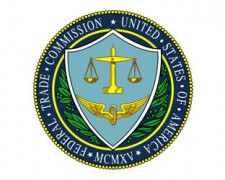 A veritable spider’s web of scams was rolled into one in an attempt to get cash from consumers seeing to lose weight. The number of things associated with a scam shut down by the FTC started with false advertising claims made on a fake news site.
A veritable spider’s web of scams was rolled into one in an attempt to get cash from consumers seeing to lose weight. The number of things associated with a scam shut down by the FTC started with false advertising claims made on a fake news site.
The ultimate goal was to sell acai berry products which could not live up to the claims made about them.
It started with LeadClick Media, a subsidiary of CoreLogic, which used its news sites as a venue to run false claims about the products placed by affiliated marketing firms.
The false ads directed consumers to the online store of LeanSpa, which sold the products which were said to have colon cleansing and weight loss properties.
Customers were lured into a “free trial” that kicked off a $79.99 a month payment that the company made extremely difficult to terminate.
“This ruling is good news because it takes ill-gotten gains out of the hands of companies who knew they were promoting a scam and gives them back to the consumers who lost millions of dollars,” said Jessica Rich, Director of the FTC’s Bureau of Consumer Protection. “It also makes clear that a parent company cannot retain ill-gotten gains of its subsidiaries.”
LeadClick is ordered to return $12M in ill-gotten gains, and CoreLogic is on tap for $4M.
In a proceeding, the FTC stated, “…the court held that the fake news sites developed by LeadClick’s affiliates deceived consumers by using real news organization names and logos along with purported testimonials from users of LeanSpa’s products. In finding LeadClick responsible for the deceptive content on its affiliates’ websites, the court noted that LeadClick recruited the affiliates, had the power to approve or reject their marketing websites, paid the affiliates, purchased advertising space for them, and gave them feedback about the content of their sites. The court also rejected LeadClick’s claim that it was immune from liability under Section 230 of the Communications Decency Act, because it was responsible in part for the fake news sites promoting LeanSpa’s products.”





